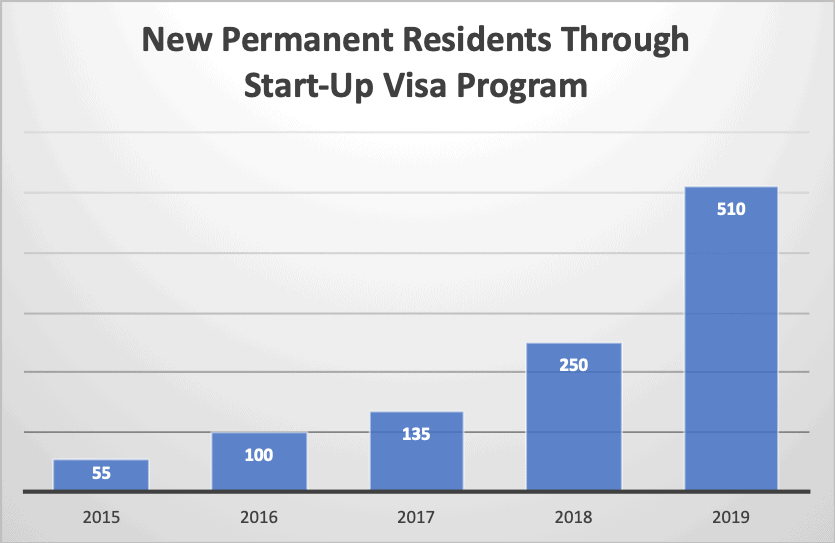Last Updated on
Canada’s Start-Up Visa Program succeeds where previous programs failed in attracting high-calibre entrepreneurs with the skills and attributes for business success.
While fewer candidates come to Canada through the SUV, those that do are highly qualified individuals who bring with them significant human capital, including age, education and language ability.
SUV candidates compare favourably to those admitted through Canada’s previous Entrepreneur Programs on human capital and in terms of business success.
Watch the Video
The Start-Up Visa has been lauded and copied by other countries, held up as another example of Canada’s innovative and flexible approach to immigration.
Through the SUV, Canada is able to quickly bring in some of the world’s brightest talent, matching them up with local investors to turn their business ideas into reality.
Read More
Canada Sees Steady Rise in New Permanent Resident Admissions Through Start-Up Visa
Eight Things to Know About Canada’s Start-Up Visa Program
Start-Up Visa Program Bringing Entrepreneurs and New Businesses To Canada
Initially launched as a pilot program, the SUV was made permanent in 2018 and has gone from strength to strength.
The program aims to recruit innovative entrepreneurs to Canada and link them with private sector investors (angel investor groups, venture capital funds or business incubators) to help establish their business.
Candidates have the option of initially coming to Canada on a work permit, before transitioning to permanent residence.
In 2019, the total number of new permanent residents admitted through the SUV reached 510, more than double the 250 welcomed in 2018. The figures have been steadily increasing over the last five years.

Stakeholders report an important advantage of the program is timely processing, both of the initial work permit and the permanent residence application.
If an entrepreneur has a viable start-up business project, it will take about 4-6 months to secure a commitment certificate or letter of support from a designated entity. Once a letter of support is received, the application for permanent residence can be submitted. It will take approximately 18-months to finalize the application to permanent resident visa issuance.
Surveys suggest SUV candidates go on to succeed in Canada, in terms of growing their business, attracting further investment, networking or selling their business for a profit.
Video: The Essentials of Canada’s Start-Up Visa Program
From the point of view of Immigration, Refugees and Citizenship Canada (IRCC), the program is cheaper to administer than the previous Entrepreneur Program. Through the SUV, the private sector investor selects candidates based on the viability of their business idea. Under the previous program, this was done by IRCC visa officers.
Already viewed as an industry leader, Canada was one of the first among its peers to introduce a Start-Up Visa, a move that has been replicated by developed countries all over the world.
As a result, Canada is now viewed as a destination of choice for immigrant entrepreneurs despite increased competition from other countries.
The number of candidates may be quite low, although it is quickly increasing, and those that have come through the program are of high value to Canada’s economy and have enjoyed success in the business environment.
As the number of candidates grows, the SUV is set to become an increasingly important program on the landscape of Canada immigration.
